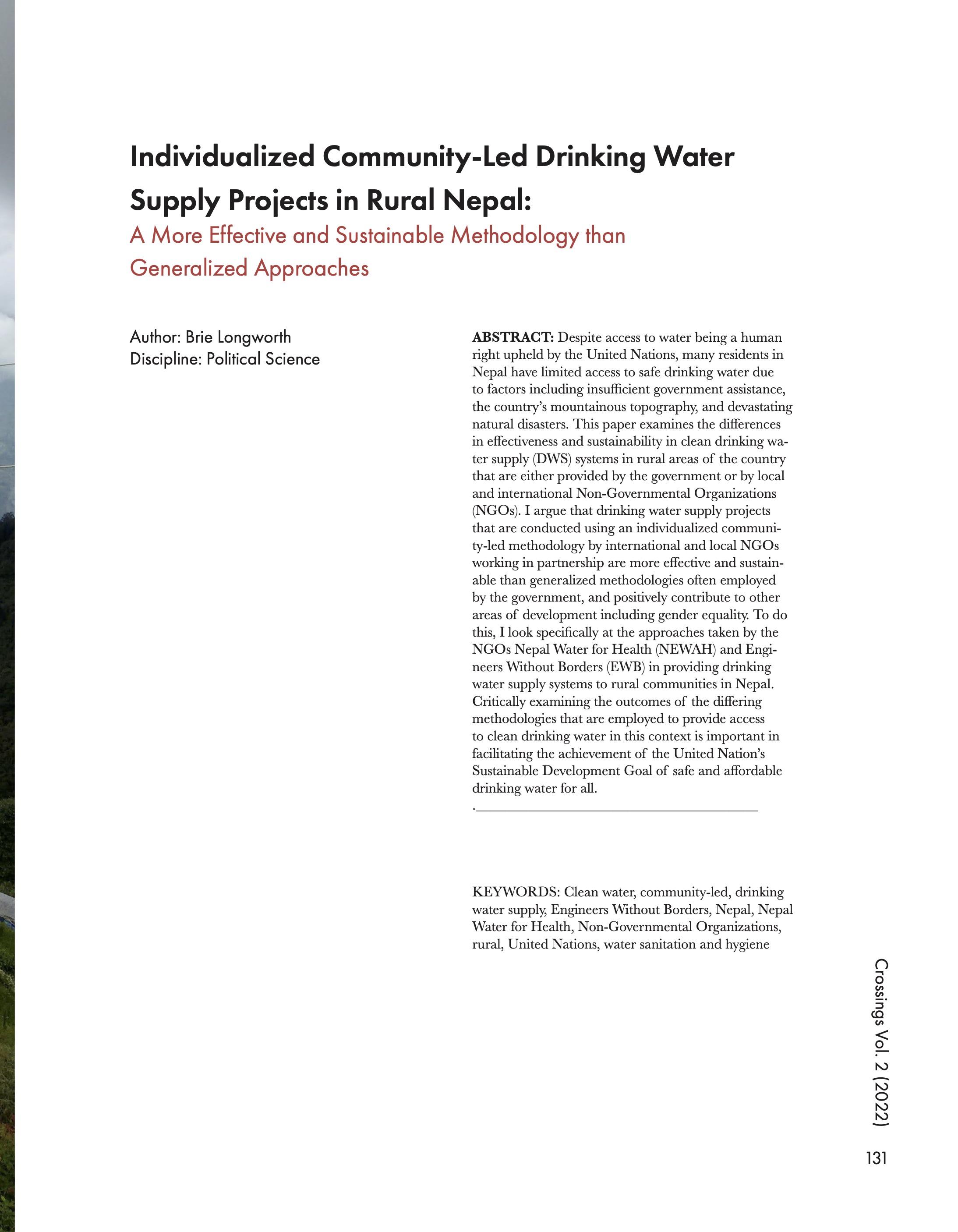Individualized Community-Led Drinking Water Supply Projects in Rural Nepal
A More Effective and Sustainable Methodology Than Generalized Approaches
DOI:
https://doi.org/10.29173/crossings90Keywords:
Nepal, Drinking Water Supply, Clean Water, United Nations, UN, Non-Governmental Organizations, NGOs, Nepal Water for Health, NEWAH, Engineers Without Borders, EWB, Sustainable Development Goal, Community-led, Water Sanitation and Hygiene, WASH, RuralAbstract
Despite access to water being a human right upheld by the United Nations, many residents in Nepal have limited access to safe drinking water due to factors including insufficient government assistance, the country’s mountainous topography, and devastating natural disasters. This paper examines the differences in effectiveness and sustainability in clean drinking water supply (DWS) systems in rural areas of the country that are either provided by the government or by local and international Non-Governmental Organizations (NGOs). I argue that drinking water supply projects that are conducted using an individualized community-led methodology by international and local NGOs working in partnership are more effective and sustainable than generalized methodologies often employed by the government, and positively contribute to other areas of development including gender equality. To do this, I look specifically at the approaches taken by the NGOs Nepal Water for Health (NEWAH) and Engineers Without Borders (EWB) in providing drinking water supply systems to rural communities in Nepal. Critically examining the outcomes of the differing methodologies that are employed to provide access to clean drinking water in this context is important in facilitating the achievement of the United Nation’s Sustainable Development Goal of safe and affordable drinking water for all.

Downloads
Published
Issue
Section
License
Copyright (c) 2022 Brianna Longworth

This work is licensed under a Creative Commons Attribution 4.0 International License.

